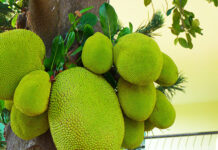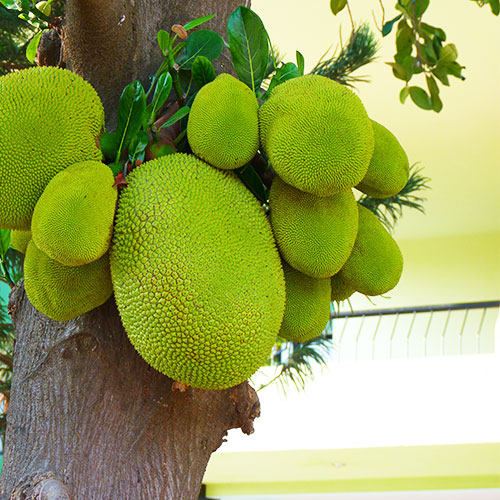AGENCY
new delhi, MAY 16
In a striking fusion of traditional horticulture and modern intellectual property rights, eight unique varieties of jackfruit cultivated in Tubagere and the surrounding villages of Doddaballapura taluk have secured national patents under India’s Protection of Plant Varieties and Farmers’ Rights Authority (PPFRA). This milestone not only acknowledges the biodiversity and agrarian expertise of local farmers but also marks a significant step in the economic and scientific elevation of a long-overlooked fruit. At a felicitation event organised jointly by the Tubagere Jackfruit Growers Association, the district horticulture department, and the Krishi Vigyan Kendra (KVK), retired University of Agricultural Sciences (UAS) Vice-Chancellor Dr. Narayan Gowda presented the PPFRA certificates to the farmers at a function on Wednesday.
Jackfruit, rich in vitamins, minerals, potassium, and dietary fibre, has long been undervalued, and it is time to recognise its health, commercial, and ecological potential.
Among the eight awardees was Sudha from Kachihalli, whose jackfruit trees—some over 120 years old—were recognised for their distinctive aroma, taste, and shelf life.
“There is a high demand for our variety,” Sudha said, “but we need better facilities from the government to scale our efforts.”
The patent grants her exclusive rights over this variety for 20 years, ensuring that only licensed parties can propagate or sell it. Similarly, Krishnappa, another awardee, said,“Our jackfruit now enjoys national recognition. This not only honours our land but safeguards our variety for generations.”
GKVK scientist Dr. Shamalamma said that it was a range crop requiring minimal inputs. After developing new varieties, demand has surged, she said, and added,” a small jackfruit that once sold for ?15–20 now fetches ?45–50.”
Its low glycemic index makes it particularly suitable for diabetics. With over 1,000 tonnes of jackfruit traded annually in the taluk, Tubagere has emerged as a quiet agro-economy success story. “Wherever you look, you’ll see jackfruit trees,” said Ravikumar, secretary of the Growers Association. “We need a dedicated market near Devanahalli airport to harness the export potential.”
Beyond fresh produce, local entrepreneurs are transforming jackfruit into high-value products—chips, papad, dehydrated snacks, and even flour. A display of such items at the event drew wide attention, suggesting a budding food-processing ecosystem anchored in indigenous crops. Jackfruit’s newfound marketability coincides with India’s growing focus on “superfoods” and climate-resilient agriculture.
Its medicinal and dietary profile—rich in fiber, potassium, and antioxidants—positions it as an affordable nutrition source for both rural and urban diets.
The Tubagere jackfruit story reflects a broader shift in Indian agriculture toward localised innovation, IP awareness, and value-chain integration. Yet, gaps remain. Farmers are calling for cold storage units, processing centers, and export-oriented logistics near Bengaluru. The PPFRA patents have empowered cultivators, but sustaining momentum requires coordinated support from state and central agencies. As jackfruit steps out of backyard obscurity into national and international markets, it symbolises a quiet revolution—rooted in soil, sustained by science, and nourished by community.
Tubagere’s golden fruit may well be the harbinger of a greener, healthier, and economically resilient India.



























